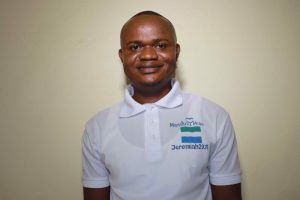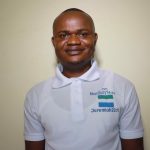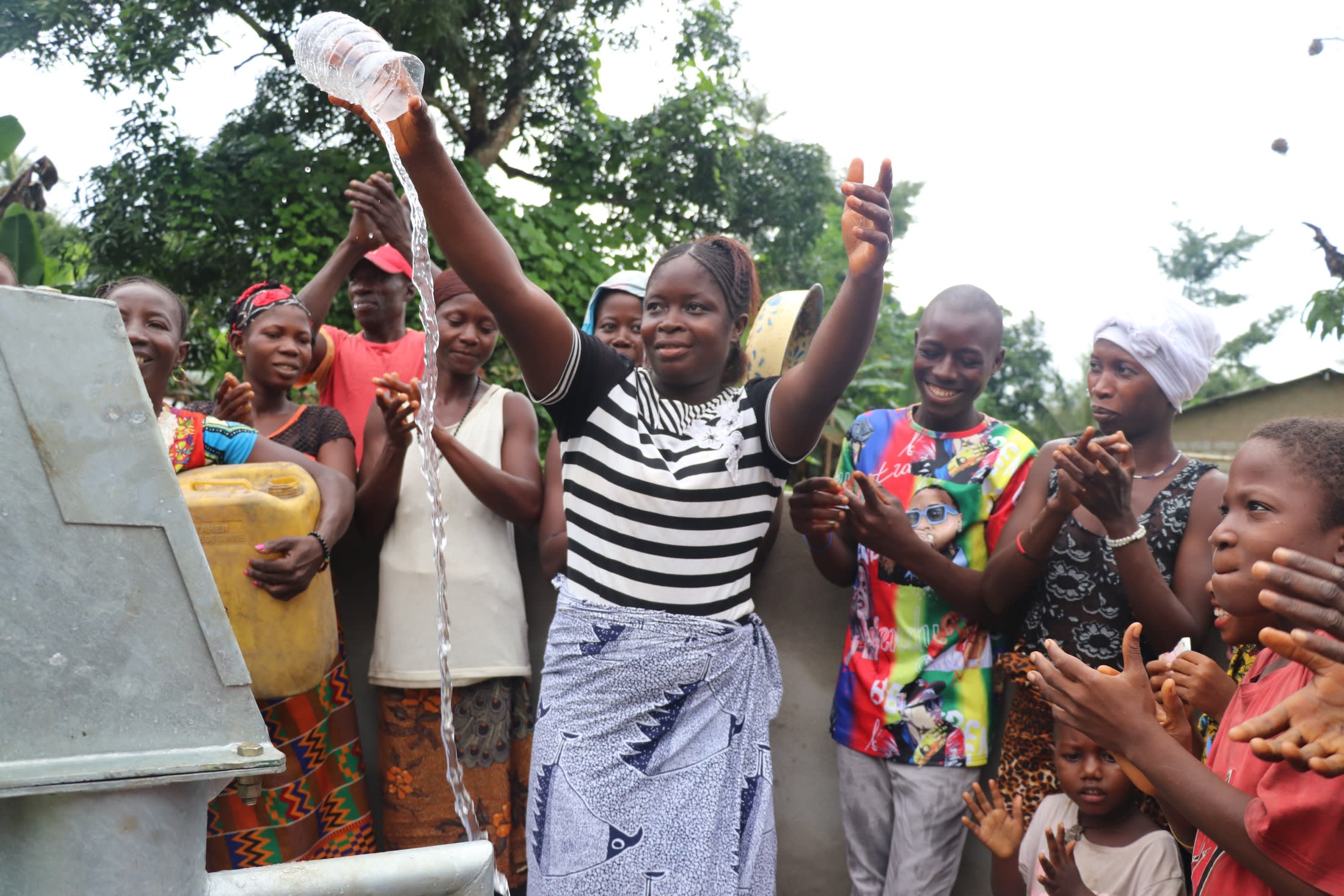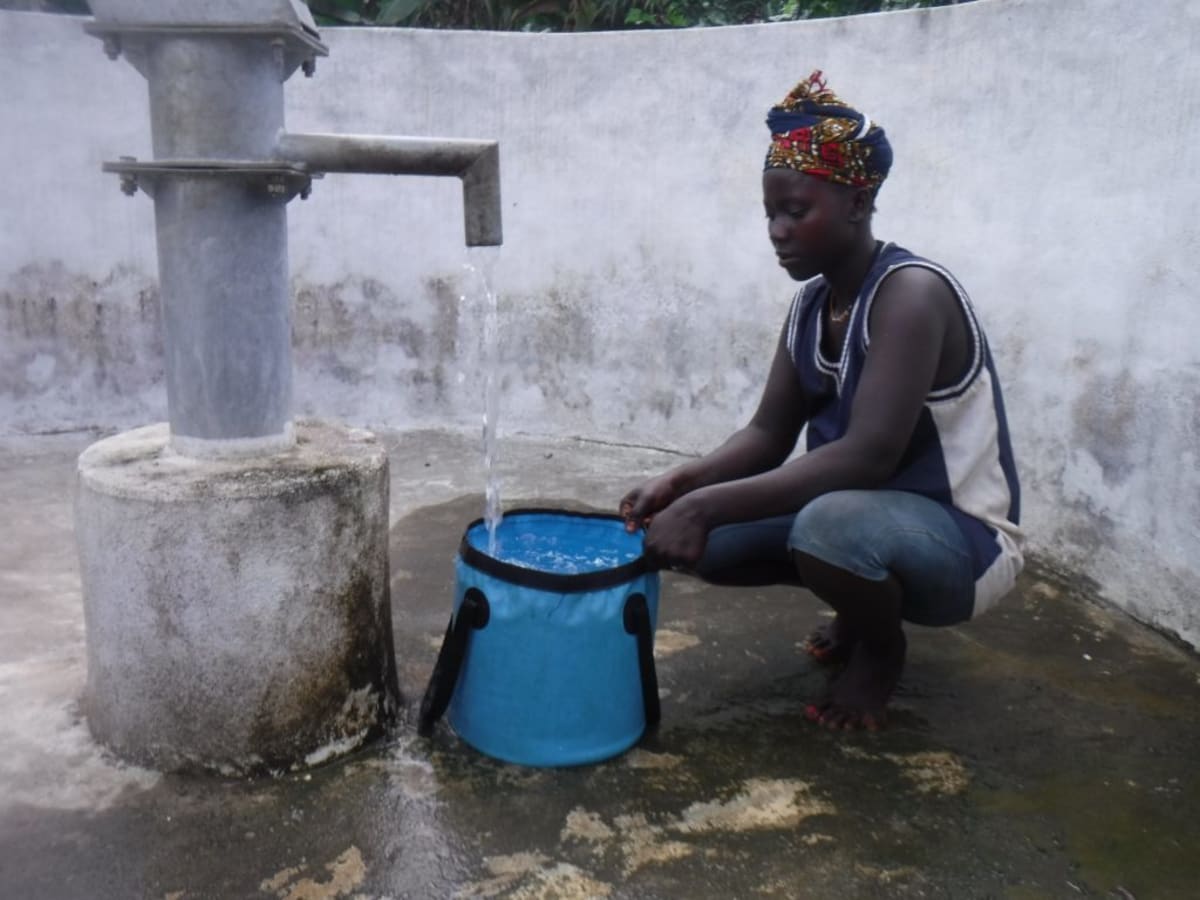In Maribo, the people cannot win when it comes to water. During the dry season, their only source of water - a swamp - dries up. Then, when the wet season comes, the swamp becomes visibly dirty from both soil and surface runoff. Either way, the 209 people of this community are left without a source of safe water.
"In the dry season, the water at the water source becomes dry," said Aminata Kaba, a 22-year-old farmer. "The little water available could not provide water for the entire community at the same time, so I have to wake up very early in the morning to fetch clean water from the water source before everyone goes there to fetch water and makes the water muddy."
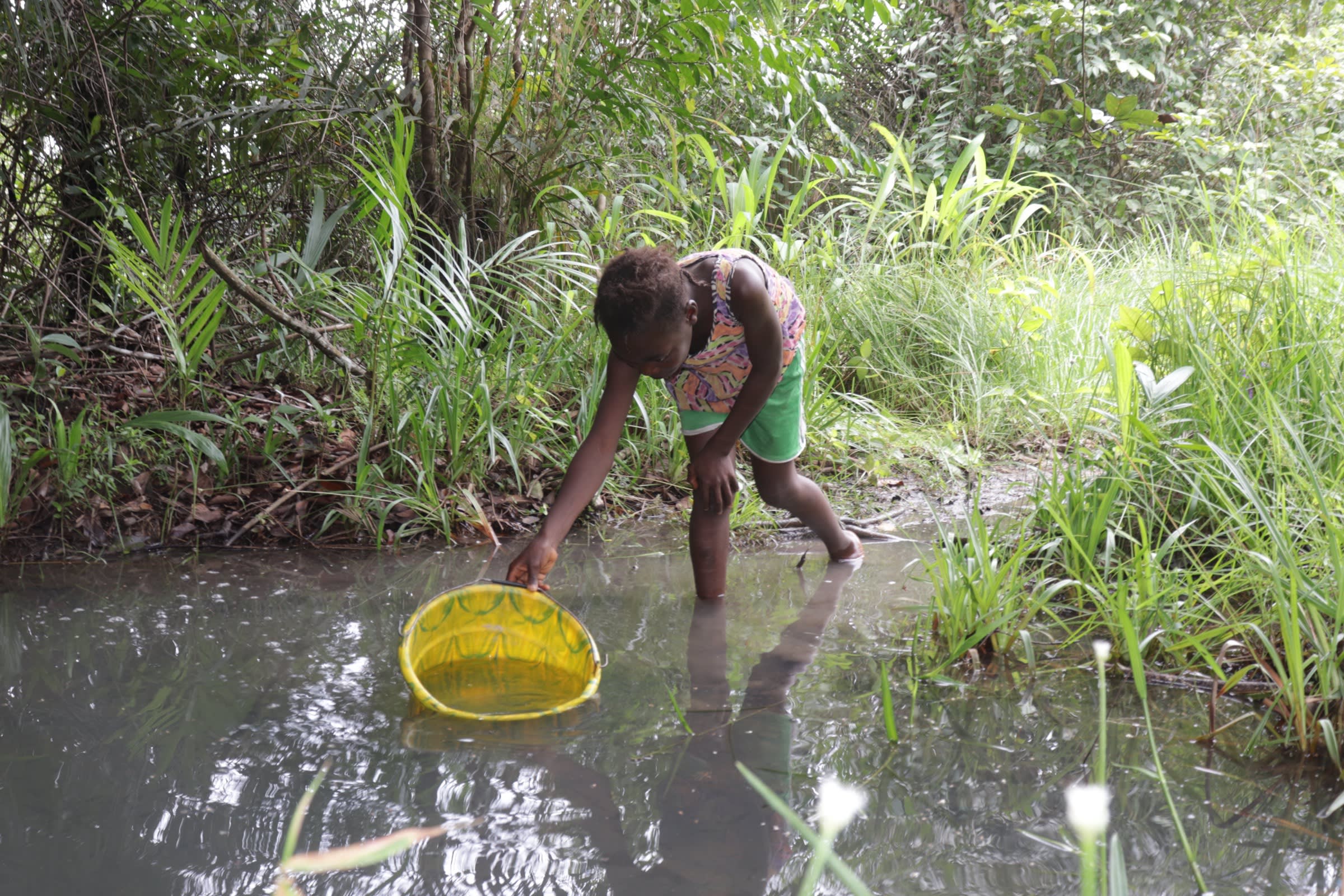
The distance to the main water source is long: the shortest amount of time to walk there for anyone in Maribo is 16 minutes, stretching up to an hour for the unlucky ones. The footpath is rough in the dry season and slippery in the rainy season. During both seasons, it's hard to traverse while carrying water. The swamp is contaminated, being open to humans, animals, and garbage. And it's a dangerous area because it is often shared with venomous snakes hiding in the tall grass, especially during the dry season.
And the water isn't just inconvenient, it's unsafe. The community is plagued with diarrhea, dysentery, and skin rashes.
"I struggle a lot to fetch water from the main water source to do my domestic activities," Aminata continued. "The distance to the water source is far, and I cannot go there alone to fetch water because of the road and the dangerous area. The water source is not safe for me to stay alone for even ten minutes."
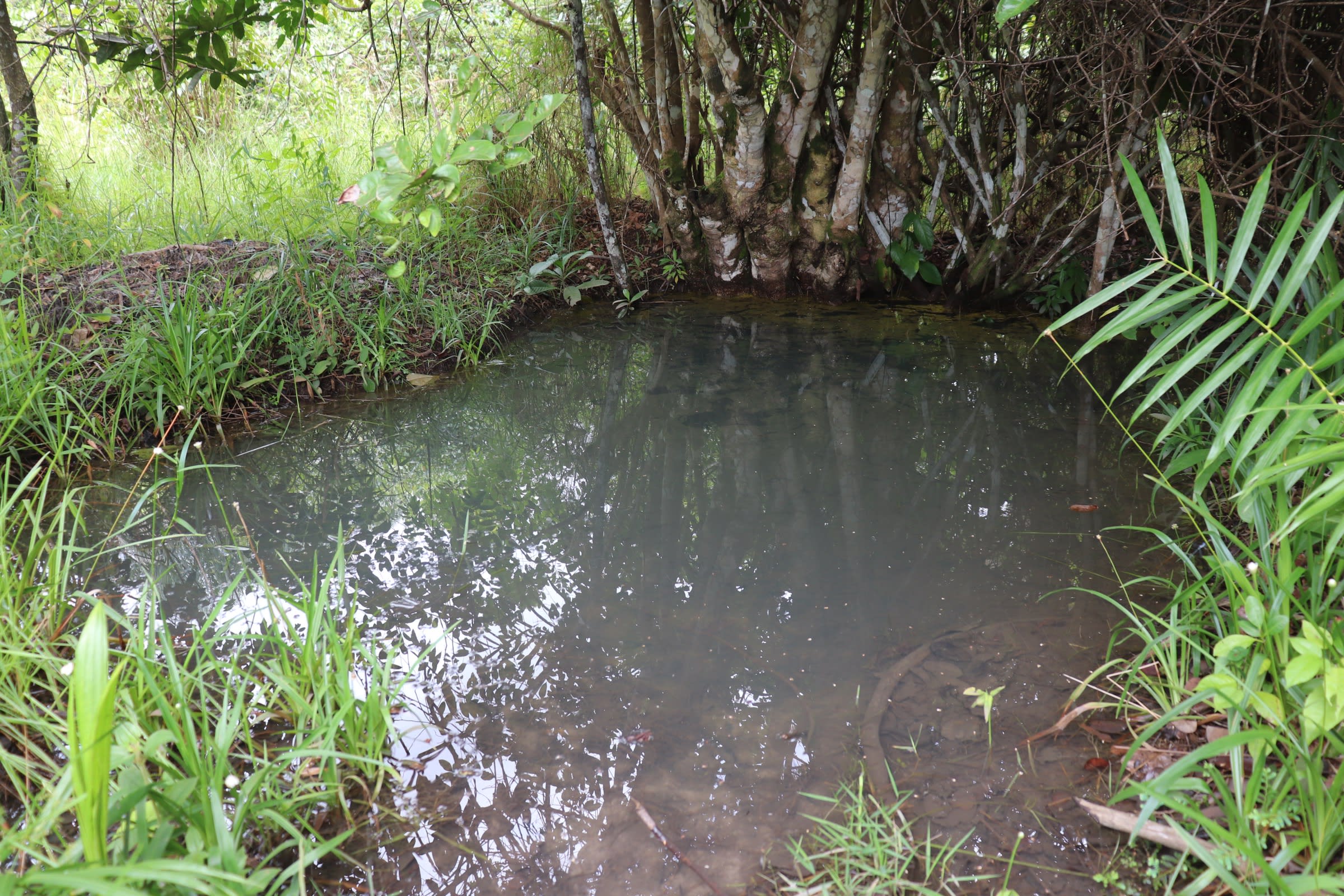
"It is very difficult for my mother alone to fetch enough water to do all the domestic activities," said 15-year-old Amara K. Because there is no school in Maribo, he is sent away during the week and only returns home on the weekends. "I assist her anytime I am back to the family."
"Our water source is far," Amara continued. "It is difficult to carry a heavy container of water on the head from the water source to the house. This causes pain on my body, which affects me in school. Most times, especially when we are engaged in farm work, we eat late because my mother [leaves] us working on the farm to fetch water to cook. She [finishes] cooking late, as she spent more time fetching water."
Aminata echoed this same sentiment. "Searching for water every day prolongs other activities on my daily schedule. I hardly have enough time to work on my farm because I need to come home earlier to fetch water to cook."
The water scarcity in Maribo holds the people back from improving their lives. With more time to farm or earn a better living, perhaps their community would have a school so they wouldn't need to send their children away. With your help, we can give them the chance to find out.
What we can do:
New Well
Where we will be drilling is centrally located and will relieve many people of the long journey to fetch water and the challenge of accessing clean water.
Our team will drive over the LS200 mud rotary drill rig and set up camp for a couple of nights. Once the well is drilled to a sufficient water column, it will be cased, developed, and then tested. If these tests are positive, our mechanics will install a new India Mark II pump.
By drilling this borehole, Maribo and the surrounding community will be provided with plenty of accessible, clean drinking water.
Training
There will be hygiene and sanitation training sessions offered for three days in a row.
Community members will learn how to make a hands-free handwashing station called the "tippy-tap." We will use these tippy taps for handwashing demonstrations and will also teach about other tools like dish racks and the importance of properly penning in animals. We will highlight the need to keep restrooms clean, among many other topics.
This training will also strengthen a water user committee that will manage and maintain this new well. They will enforce proper behavior and report to us whenever they need our help in solving a serious problem, like a pump breakdown.

 Borehole Well and Hand Pump
Borehole Well and Hand Pump
 Rehabilitation Project
Rehabilitation Project








